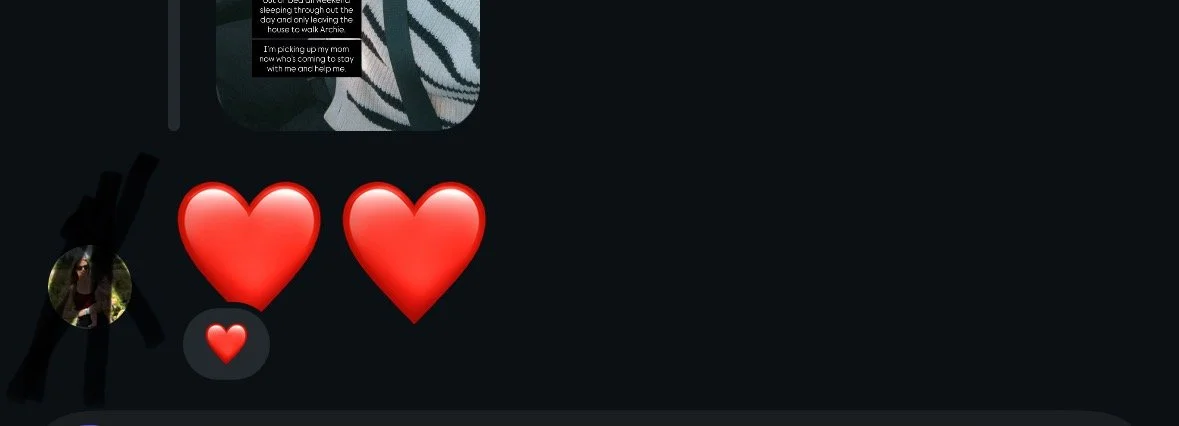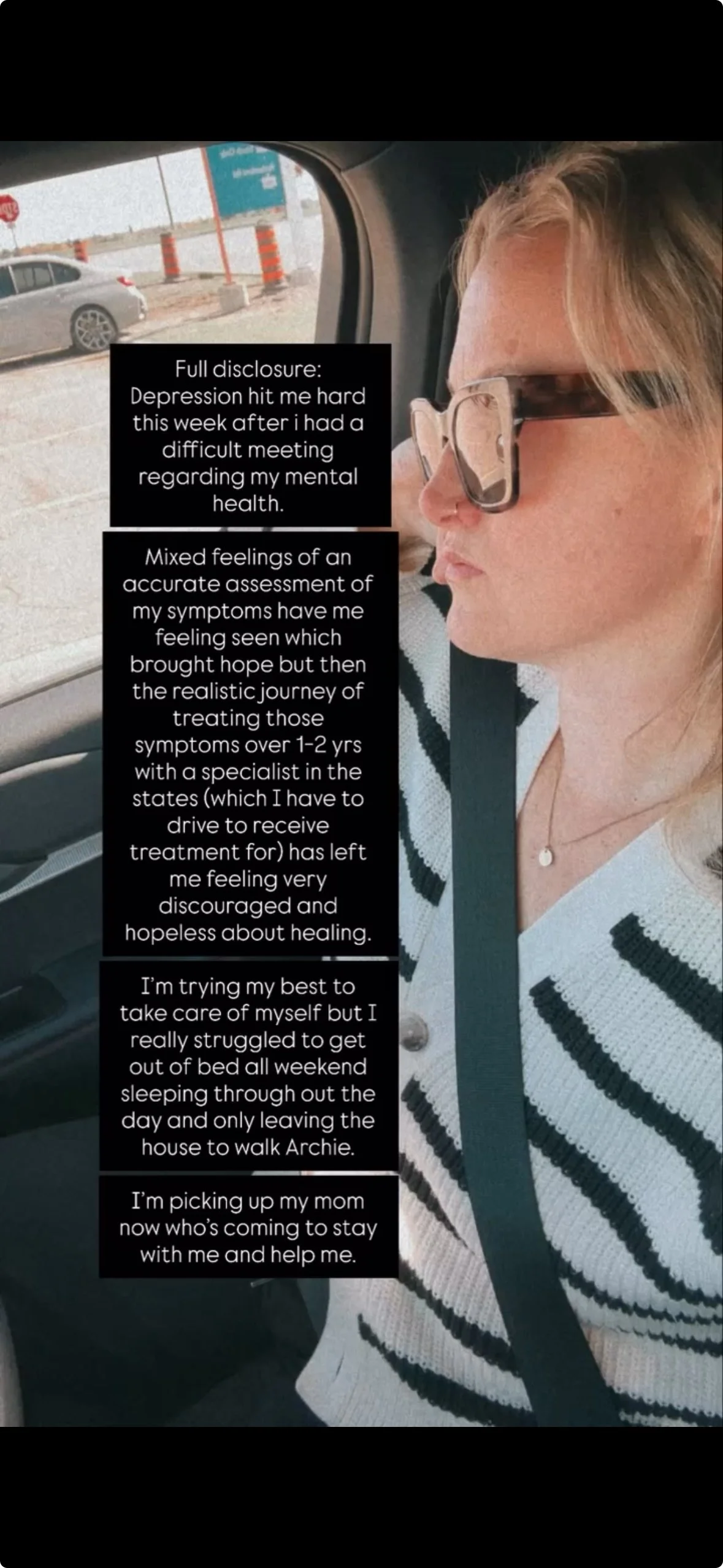Your Greatest Struggle Might Be the Very Thing That Makes You a Great Leader
After a difficult depressive episode this weekend, I found myself standing at a crossroads.
One direction: leadership.
The other: healing.
They felt mutually exclusive. If I chose healing, I feared I couldn’t lead. And if I chose to lead, I feared I couldn’t heal.
The idea of pursuing your dreams while “sick” has been sitting in the back of my mind since this summer when I watched a documentary on TLC, the 90’s pop group. I’ve always loved TLC—my very first email as a pre-teen was crazysexycool@hotmail.com, inspired by the title of their second album.
During the documentary, I learned that Tionne “T-Boz” Watkins has lived with sickle cell disease since childhood. Despite her chronic pain and hospitalizations—even while touring—she never gave up on her dream. She knew she was destined for fame and went for it. I found her courage deeply inspiring. I wish I had that kind of confidence.
I found myself contemplating:
“How can I still pursue my dreams while being mentally ‘sick’ and needing to heal?”
Living with Mental Health Challenges
As I’ve shared before in my story, I’ve struggled with mental health since I was a teenager. For years I hid it—ashamed of my inability to “just be okay.” In my mid-30s, a psychiatrist diagnosed me with ADHD, Depressive Disorder, Anxiety Disorder, Binge Eating Disorder, and a few others I can’t even remember.
Receiving a diagnosis is such a paradox—it brings both relief and grief. Relief that your pain finally has a name, but grief over what that diagnosis means for your life. Treatment plans can feel overwhelming: medication, therapy, rest, and support can all feel like interruptions to the path you were walking. Suddenly, you’re at a crossroads again—deciding how to move forward in a life that now looks different.
When Healing and Ambition Collide
This past year, while working with a business coach to bring ContemplatingKatie to life, I kept hitting a wall that wouldn’t budge. So, I reached out to a renowned Harvard psychologist I’d trained under during my years as a psychotherapist. He’s brilliant—firm but gentle—the kind of clinician whose presence transforms people.
After I burned out and paused my private practice, I lost touch with him. Two years later, feeling ready to heal, I reached out again. He agreed to see me for personal sessions and I waited five months for an opening.
Last week, I finally had my 2.5-hour assessment.
At the end, he told me my symptoms were significant and that he anticipated “years” of treatment—at least one to two to reach a manageable place.
It broke me.
I’d expected maybe six months. I’ve done so much work on myself—I thought I was further along. But deep down, I knew he was right. Despite all my mindset progress, my emotional regulation still derails me. Depression, anxiety, ADHD, and PMDD show up physically through migraines, nausea, and exhaustion.
The Spiral
The days after that appointment were dark.
I live alone, which makes it easy to disappear—to reply “good and you?” when I’m anything but.
Trigger warning: suicide
Dark thoughts came and went, whispering that everyone would be better off without me. The one thing that kept me alive was my youngest niece—it was her birthday weekend. I told myself, “I can’t die on her birthday.”
If you’ve ever been there, you know how convincing depression can be. Please—find something or someone to cling to. It might not fix everything, but it can keep you alive long enough to find your way back to light.
Finding My Way Forward
Six days later, after leaning on my mom for support and letting myself rest, the fog began to lift. I felt ready to face the reality of my situation with a clearer mind.
Here’s the dilemma:
To receive treatment, I need to physically be in New York State, where my psychologist is licensed… I live in Toronto.
The appointments are draining, emotionally and physically.
If recovery from each session takes days, how can I stay consistent in my creative and professional work?
I’d have to stay in Ontario, commuting every two weeks, meaning enduring a cold, grey winter which is terrible for my mental health.
But avoiding treatment only delays healing, which means ContemplatingKatie can’t grow sustainably either.
It’s a tough equation with no easy answers.
Vulnerable Leadership
Then my coach said something that stopped me in my tracks:
“You’re already leading.”
My blog, my writing, and my relationships—these are all spaces where I lead with vulnerability. My honesty shows others that perfection is a lie, and that connection is born through truth.
That’s when the idea of “vulnerable leadership” clicked. I’m not here to teach a 10-step plan to success—I’m here to show what real healing looks like.
When I posted about my depression and treatment online being honest about the depression, the response was very comforting—my highest engagement ever with genuine love and support for me (see images below). I reminded now - out of the depressive haze - that People crave authenticity. They don’t want polished perfection; they want someone who says, “I’m struggling too—and I’m still here.”
Maybe the message isn’t “I’m broken and loving it,” but “I’m broken—and it’s not breaking me.”
Redefining Leadership
So now I ask myself:
What does true leadership look like?
How can I embody my weaknesses as strengths?
How can I live out the mission of ContemplatingKatie through vulnerability and truth?
This isn’t about fixing a “problem.” My mental health isn’t a flaw—it’s simply part of being human. And being human means we’re suspecting to illness. I wouldn’t shame myself for having poor eyesight; I’d just recognize that I need glasses and get on with it. In the same way, having a mind and body that need care, treatment, or rest doesn’t make me weak—it makes me human.
What I live with isn’t a limitation, it’s a teacher.
My experiences, my diagnoses, my need for support—these aren’t signs of failure. They’re signs of being alive, of feeling deeply, of navigating life honestly. And through that, I’ve realized something powerful:
my struggle isn’t just something to heal from—it’s a form of wisdom.
In fact, maybe the very reason I suffer from these things is what allows me to lead with empathy, depth, and authenticity—backed by years of professional training and experience as a social worker in trauma and healing.
It is because I am broken that I get to lead with such grace, wisdom, and authority.
So I guess it’s about time for me to get on with it, looking sexy AF in a new pair of glasses :)
These are my raw and honest thoughts.
I hope they help.
Katie
Watch my YouTube video : My Instagram stories that generated such a loving response









